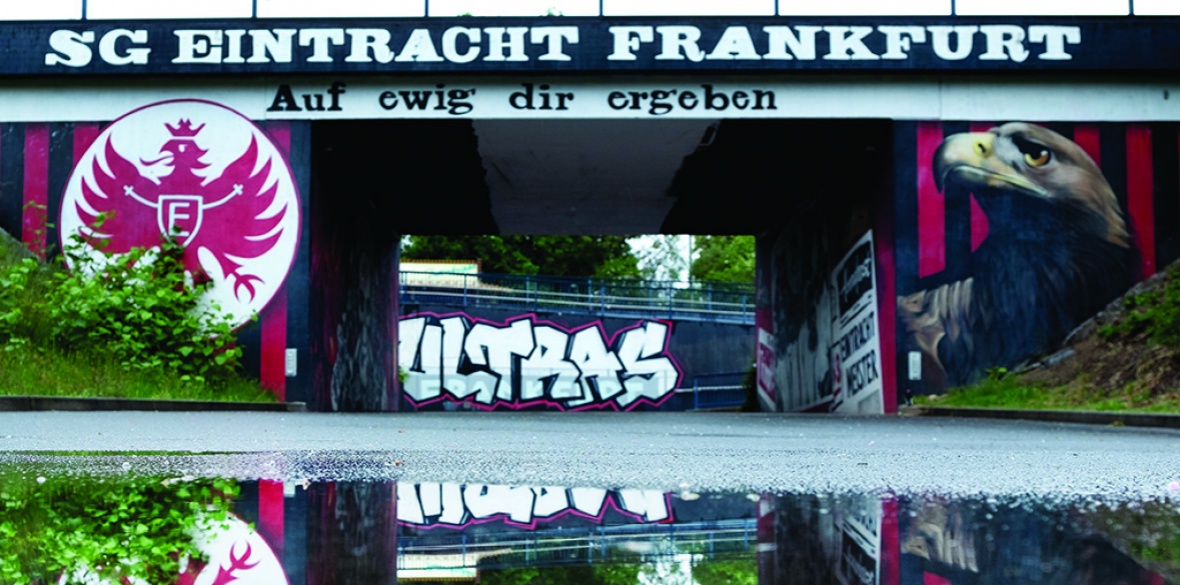This is the last article you can read this month
You can read more article this month
You can read more articles this month
Sorry your limit is up for this month
Reset on:
Please help support the Morning Star by subscribing here
THE subject of football club ownership feels even more pertinent in the current climate, when the questions in the minds of some fans aren’t just about when football clubs take to the pitch again, but why?
Who will the clubs be playing for, and why are they playing? As is often the case when it comes to issues of football politics and fan culture, Germany leads the way. It just so happens that it will also be the first of Uefa’s top five leagues to attempt a return to action this weekend.
This has given German supporters the chance to tackle political and moral issues of football’s return, just as it has given the league and its clubs a chance to work out the logistics of the resumption of matchdays, while also trying to ensure players’ health and wellbeing.
There is a wider consensus that the clubs need to return to the pitch simply in order to survive, but they are definitely not returning to the pitch solely for the benefit of the supporters, staff, and players.
In the long term, the return may benefit fans, in that their clubs as they know them will still exist on the other side of this, but two of the clubs listed as existentially threatened following a study by the HHL Leipzig Graduate School of Management, Union Berlin and SC Paderborn, have challenged the idea that they are on the brink. Union are even considering legal action against this damning assessment.
There is a danger that those who want to scrap the 50+1 rule — which ensures a club’s members hold a majority of its own voting rights — in order to see more outside investment and more power taken away from fans, will try to use the situation for their own ends.
But, if anything, the Bundesliga is best equipped to ride this crisis as it relies less on TV money than other big European leagues, meaning the argument should go in the other direction — that 50+1 isn’t enough and the fans and members should have more of a say.
After all, it is the supporters who have long voiced their concerns about football’s over-reliance on TV money, and the current situation highlights the stranglehold it has on the game.
Whether fans agree or disagree with the return of football behind closed doors, there is no question that changes need to be made regarding the running of the game across Europe. And as many supporter groups across Germany have pointed out this month, these aren’t new problems, the current situation has merely highlighted them.
In England, football club ownership at the highest level appears to have gone beyond the point of no return. Many supporters’ groups across the top divisions do an excellent job of holding their rich owners and governing bodies to account, offering vital balance, but any long-term aims to eventually see these historical institutions in the hands of those who made them what they are, seem some way off.
But further down the leagues, in the foundations of the English football pyramid, a number of clubs are doing things differently. Many have been rescued by supporters’ trusts and fan ownership following failed private ownership, while new clubs have spawned with a better answer to that original question: who are the clubs playing for, and why are they playing?
City of Liverpool FC (COLFC) is one such club, and are set up primarily for the benefit of the community in which they reside. It is five years this month since the club were officially established, and almost four years since they played their first game. In that time they have become one of the biggest supporter-owned clubs in the country.
On the pitch this year, COLFC have undergone what they describe as an “at times brutal introduction to football at Step 4 of the pyramid,” — the eighth tier of English football.
“We feel it gave us a good, solid grounding in what we will need to do in order to continue to be successful on the pitch at this level in the coming season,” they added.
Off the pitch, the club is continuing its Purple Pantry initiative which has been delivering emergency food parcels to the most vulnerable in the community. This reflects the work done by lots of those aforementioned fan groups in Germany, who have been at the forefront of the support effort in their own communities during the coronavirus crisis.
On the pitch, as will be laid bare on television screens this weekend as Bundesliga matches are broadcast without supporters present, a stadium and the fan culture it houses contribute massively to a football club’s identity and the matchday experience.
COLFC are continuing to work strenuously on building their infrastructure, with their own stadium project moving forward and other exciting projects close to fruition. The club believe that “this will begin the process of sustainability for COLFC and truly turn us into a 100-year project.”
Between July 1 and August 30 this year, supporters will once again have the opportunity to become members of this unique community benefit club.
As many supporters around the world are being told to pick a Bundesliga team ahead of this weekend’s fixtures, they may well reconsider what they want from their football teams closer to home.
Becoming part of these clubs, which will remain “grassroots” no matter how tall they grow, might be the only way to ensure your team is playing for the right reasons and in the right spirit.











